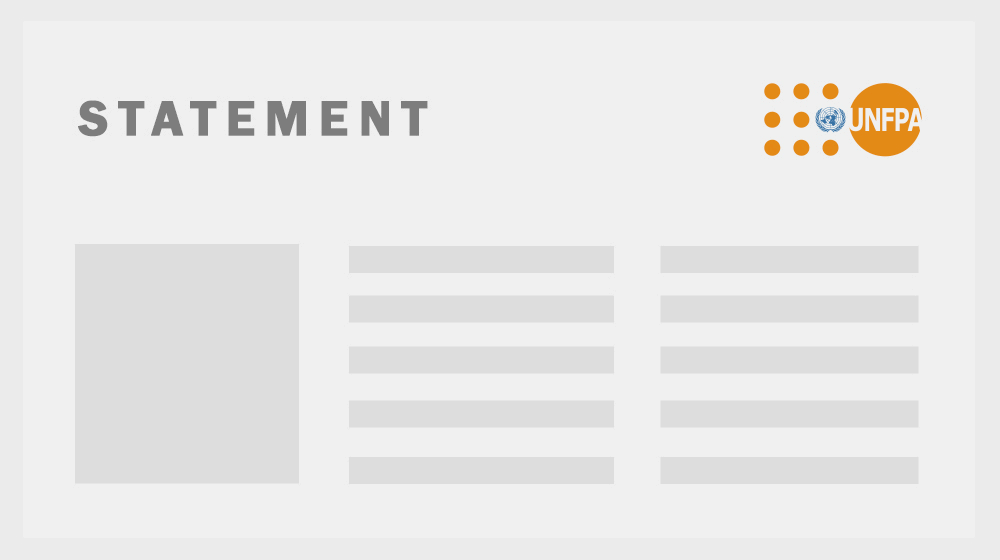UNFPA-UNICEF Joint Programme on the Elimination of Female Genital Mutilation
UNFPA and UNICEF have jointly led the largest global programme to accelerate the elimination of female genital mutilation (FGM) since 2008. In close collaboration with governments, grassroots community organizations and other key stakeholders, the Joint Programme harnesses the complementary expertise of both UNFPA and UNICEF, as well as the latest social science research, to prevent female genital mutilation across the 17 countries where the programme operates.
The Female Genital Mutilation Joint Programme achievements at a glance*
- Legal and policy frameworks: Fourteen of the 17 countries supported by the UNFPA-UNICEF Joint Programme have legal and policy frameworks banning female genital mutilation. To date, there have been more than 3,200 cases of legal enforcement and arrests. Public statements at all levels of government have announced that female genital mutilation is a human rights issue and must be stopped. Such statements provide the political backing required to strengthen community-wide efforts and initiatives to eliminate female genital mutilation.
- Government ownership: As of 2022, 16 countries supported by the UNFPA-UNICEF Joint programme have a national coordination mechanism in place that systematically engages all actors at the national level. Ten countries have established a national budget line funding services and programmes specifically to address female genital mutilation.
- Increased community-led engagement: As a result of community-led engagement through education, dialogue and consensus-building, more than 47 million individuals have made public declarations advocating for the abandonment of female genital mutilation. In addition, 691,793 girls were prevented from undergoing the practice thanks to established community-based surveillance mechanisms.
- Provision of appropriate and quality services: More than 6.3 million women and girls in the 17 countries supported by the Joint Programme have benefited from FGM-related protection and care services.
- Advocacy and awareness outreach: More than 153 million people were reached through radio and TV programmes on female genital mutilation prevention. Moreover, 41.2 million people actively participated in education/sensitization/social mobilization sessions promoting the elimination of female genital mutilation, as of 2021.
The Joint Programme supports global-, regional- and national-level initiatives led by survivors of female genital mutilation. It has successfully created awareness and galvanized a global movement on issues related to female genital mutilation by:
- Organizing global- and regional-level advocacy events to sustain and reinforce the political commitment towards the elimination of female genital mutilation
- Supporting the African Union Initiative on the Elimination of Female Genital Mutilation (Saleema Initiative), which aims to put in place a regional accountability and peer review mechanism to hold member states accountable to their commitments
- Advocating for and providing the needed technical support for resolutions calling to end female genital mutilation by the UN General Assembly and UN Human Rights Council, and
- Advocating for the elimination of female genital mutilation within intergovernmental political forums and spaces, including in the International Conference on Population and Development and Generation Equality forums.
The time to act is now
Over 200 million women and girls alive today have experienced female genital mutilation. In 2024, an estimated 4.3 million girls are at risk of being subjected to the practice, and UNFPA estimates show COVID-19-related disruptions to programming could increase this figure by 2 million more potential cases over the next decade, unless concerted and accelerated action is taken.
Phase IV of UNFPA-UNICEF Joint Programme on the Elimination of FGM
The Joint Programme on the Elimination of Female Genital Mutilation has in the last 13 years been actively contributing to the accelerated elimination of the practice globally. Three phases of the programme have been implemented. The fourth phase, launched in 2022, will intensify efforts towards the elimination of female genital mutilation by 2030. It is directly linked to the Sustainable Development Goal 5.3, which aims to end all harmful practices by 2030. Phase IV of the Joint Programme prioritizes global movement-building and bringing together allies working towards eliminating female genital mutilation. It continues to focus on countries with the highest rates of prevalence, aiming to shift social norms in affected communities while working with governments to put in place viable national response systems.
Join the effort
UNFPA and UNICEF call upon all stakeholders, including new donors and partners, to join hands with the Joint Programme to provide additional funding and support the global movement to realizing the shared vision of eliminating female genital mutilation by 2030.
Commitments to the UNFPA-UNICEF Joint Programme on the Elimination of Female Genital Mutilation will improve and scale up our work, which currently is supported by a range of generous donors, including the European Union and the governments of Belgium, Canada, France, Germany Iceland, Italy, Luxembourg, Norway, Spain, Sweden, the United Kingdom and the United States of America.
For further information on the Joint Programme, please contact jpendfgm@unfpa.org.
* As of 2022
Updated 23 January 2024



